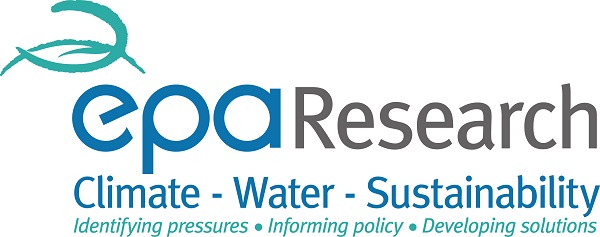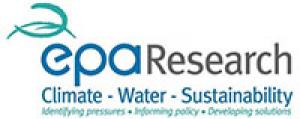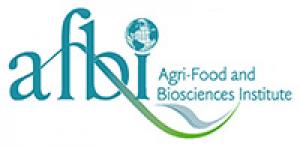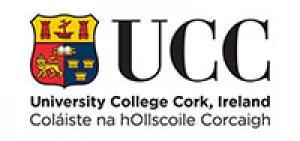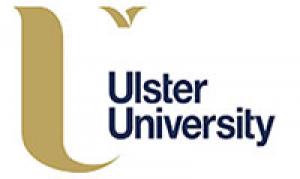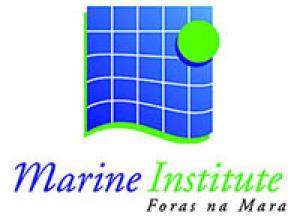Project aim
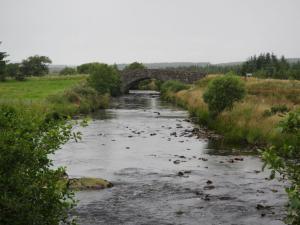
DisEnTangling the impacts of multiple stressors on the Ecology of waTerbodies (DETECT) research will provide vital evidence regarding the influence of stressors impacting freshwater rivers and lakes in Ireland. The project also seeks to identify the synergistic and antagonistic effects of stressors to inform on the practicality and cost-effectiveness of targeted mitigation measures. The team are adopting a hierarchical approach, employing national and more highly resolved Focus Catchment Level data to achieve the project aims.
This project legacy will aid in compliance with the EU’s Water Framework Directive as the Framework will have the flexibility to be updated as future data becomes available, allowing it to be used in future River Basin Management Plan cycles.
For the latest news from the project team follow us on:
Twitter and Facebook
DETECT team
Dr Yvonne McElarney
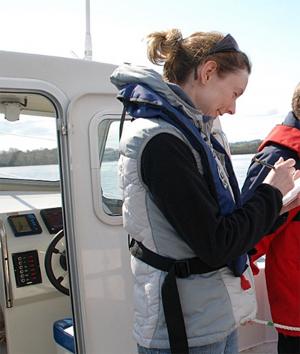
Yvonne McElarney is freshwater ecologist working within the Fisheries and Aquatic Ecosystems Branch at AFBI. Yvonne’s research involves applied ecology; using long term chemical and biological records to better understand freshwater ecosystems and support effective management. She is also responsible for coordinating the Environmental Change Network monitoring and research for freshwater sites in Northern Ireland.
Previously Yvonne has also worked on projects involving the management of upland forest lakes in Northern Ireland, assessing the impact of the P regulations and producing lake management tools for Irish lakes.
Dr Maria Snell - Higher Scientific Officer (HSO) Hydromorphology/River Ecology
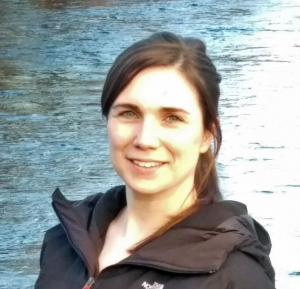
Maria Snell is freshwater ecologist working within the Agri-Environment Branch at AFBI. Maria’s research interests include ecosystem response to changes in climate, biogeochemical cycling and ecological assessment. Using benthic diatom assemblages, Maria’s primary research activities focus on the hydrological, biogeochemical and ecological connections between upland, riparian, and aquatic components of agricultural catchments. Previously, Maria has worked on the UK Defra Demonstration Test Catchment Programme, a catchment-scale research platform testing measures for addressing the effects and impact of diffuse pollution from agriculture on stream ecosystems.
Dr Rachel Cassidy
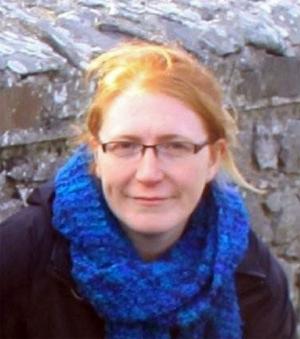
Rachel Cassidy is a catchment scientist with a background in geophysics and hydrogeology. Her main research interests include monitoring of diffuse contaminants in agricultural catchments; catchment hydrology; critical source area modelling using LiDAR elevation models; hydrogeology and near-surface geophysics and mitigating agricultural pressures on freshwater systems.
Dr Elvira de Etyo
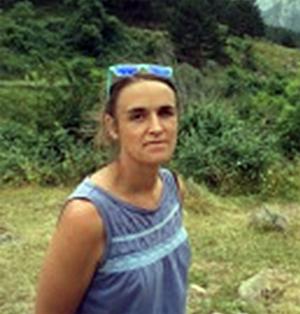
After a primary degree in zoology, Dr deEyto completed her PhD in 1999 on the ecology of the family Chydoridae and its application to lake monitoring. She has carried out postdoctoral research in the areas of lake ecological quality and salmonid immunogenetics She has worked as a biologist for the Marine Institute since 2003. The focus of her work is the long term ecological monitoring of the Burrishoole catchment, Co. Mayo, an internationally important index site for diadromous fish monitoring (http://burrishoole.marine.ie). She has co-authored more than 70 peer reviewed publications on a diverse range of subjects https://scholar.google.com/citations?user=xDxpnPoAAAAJ&hl=en
Dr Simon Harrison
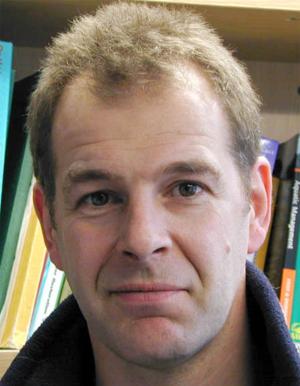
Simon is an ecologist working at University College Cork where his main research interests include the ecology of streams, rivers, wetlands and lakes; freshwater biomonitoring; ecology of salmonids; restoration ecology; catchment management and the links between agriculture and freshwaters.
Simon’s research strategy is to concentrate on applied ecological research. Most of his research has been in the field of freshwater ecology where the focus has been in two main areas - 1) impacts of riparian vegetation on stream ecology and 2) pollution and nutrient enrichment of streams and lakes.
Professor Brian Rippey
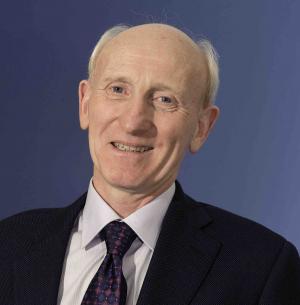
Prof. Brian Rippey is a limnologist with expertise in aquatic chemistry, the fate and effects of oxygen, heavy metals and phosphorus in lakes, particularly the sedimentary record of environmental change and processes, ecological assessment and environmental toxicology. He is one of the lead scientists in this research area in the UK and Ireland with >71 peer-reviewed publications on chemical and biological limnology and palaeolimnology, many concerning Irish lakes.
Dr Julie Campbell
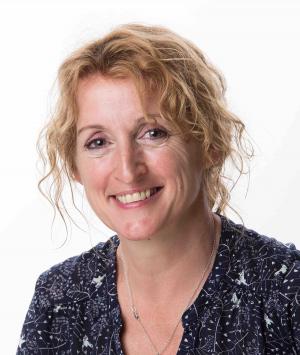
Dr Julie Campbell is a freshwater scientist with an interest in catchment hydrology and freshwater chemistry. Her recent work has involved investigating mitigation measures in Irish headwater catchments using high resolution phosphorus monitoring data. She has also investigated the phenomenon of low flow P pollution from septic tank systems and efforts to manage these systems.

Work Packages
The work involved in the DETECT project has been organised across five Work Packages (WP). A brief summary of each WP is shown below along with the timeframe and Partners involved.
Work Package 1 - Project Management & Preparation
Jan 2016 - Dec 2019
Partners Involved: AFBI & Ulster University
- Undertake effective management of the project.
- Produce a comprehensive review of the current state of the knowledge, covering Irish and International literature.
- Develop databases (in GIS and MS Access) containing collated national and Focus Catchment level data, with comprehensive metadata.
- Develop an Analytical Toolbox which will contain all the pre-processing and analytical techniques required to interrogate the data. By generating this in R (open access programming language) it will maximise accessibility.
Work Package 2 - National Scale Analysis
Jan 2017 - Jan 2019
Partners Involved: AFBI, University College Cork, Ulster University & Marine Institute
- At national scale, using available data, identify trends in water quality and their relationship with pressures. This will be done using multivariate statistical techniques and existing EPA national monitoring data. This will help assess factors constraining recovery in waterbodies and identify gaps in data.
Work Package 3 - Rivers
June 2017 - Jan 2019
Partners Involved: University College Cork, AFBI & Marine Institute
- To identify principal factors constraining ecological recovery in Irish river systems and in conjunction with WP2, assess the national scale data deficiencies limiting the identification of key stressors within river catchments.
- At local scale (the “focus” catchments), finer resolution data will be used to partition the variance explained by the constraining factors and investigate their interactive effects.
- Targeted short term field studies will supply data gaps in the focus catchments.
Work Package 4 - Lakes
Jan 2016 - Jan 2020
Partners Involved: AFBI & Ulster University
- Identify and explain the key gaps in knowledge on pressures preventing ecological recovery of lakes using results from Work Package 2 and 4 Focus Catchments.
Work Package 5 - Development of Assessment Framework
Jan 2016 - Sept 2019
Partners Involved: AFBI, Ulster University, Marine Institute & University College Cork.
This section will bring together the key findings from WP 1-4 and develop an Assessment Framework suitable for implementation by the monitoring authorities and catchment managers in Ireland.
This Assessment Framework will be used to guide managers and agencies towards the most appropriate monitoring and mitigation procedures for individual catchments, based on the most influential stressors.

Resources
Resources, publications and more information will be posted here as the project progresses.
Stressors Identified
Stressors have been identified at a national scale. Dr Simon Harrison (UCC) presented his DETECT work at the Irish Freshwater Biologists meeting in March 2017.
View Simon's presentation

Keep Up to Date
To keep up to date with the latest information from the Project Team and EPA make sure to follow the team on social media.
ResearchGate; DETECT Facebook; DETECT Twitter; EPA Twitter
Contact DETECT
Dr. Yvonne McElarney
Fisheries & Aquatic Ecosystems Branch, AFBI
Tel: +44 28 9025 5514
Email: Yvonne.Mcelarney@afbini.gov.uk
Dr. Rachel Cassidy
Agri Environment Branch, AFBI
Tel: (+) 44 28 9025 5508
Email: Rachel.Cassidy@afbini.gov.uk
Dr. Maria Snell
Agri Environment Branch, AFBI
Email: Maria.Snell@afbini.gov.uk
Prof. Brian Rippey
Environmental Sciences Research Institute
Tel: (+) 44 28 7012 4864
Email: bhrt.rippey@ulster.ac.uk
Dr. Julie Campbell
School of Geography & Environmental Sciences, University of Ulster
Tel: (+) 44 28 7012 3002
Email: jm.campbell@ulster.ac.uk
Dr. Simon Harrison
School of Biological, Earth and Environmental Sciences (BEES), University College Cork
Tel: (+) 353 21 490 3000
Email: s.harrison@ucc.ie
Dr. Elvira de Etyo
The Marine Institute
Tel: (+) 353 9138 7200
Email: elvira.deeyto@marine.ie
Project Partners
To find out more about our funders and the project partners involved in the EPA Funded DETECT project please click on the relevant logo below.

